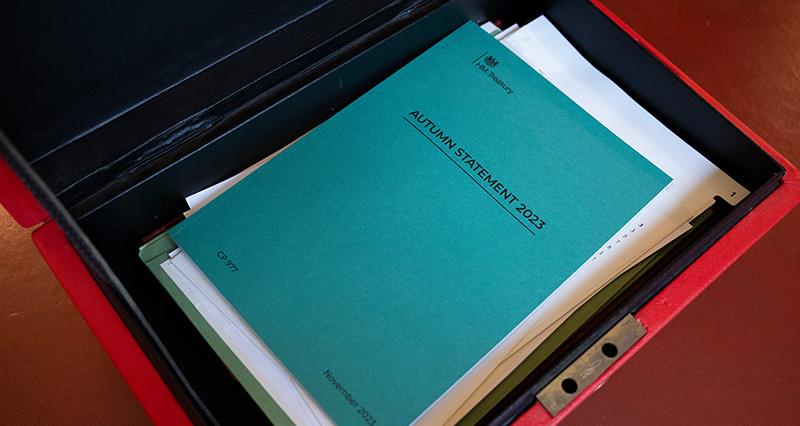Jeremy Hunt’s big set-piece featured commitments on research and development, welfare reforms and an £11 billion Corporation Tax incentive for business investment, along with a 2% cut to the headline NI (National Insurance) rate, which will decrease to 10% for more than 27 million working people from January.
Among the areas of most farming interest, two million self-employed people will benefit by an average of £350 a year, after Class Two NI was abolished entirely and Class Four NI cut from 9% to 8%. Announcing that, the Chancellor said that was to recognise groups including “the farmers who kept us fed” during the pandemic.
Mr Hunt also said he would accept the Low Pay Commission’s recommendation for the largest-ever increase of the National Living Wage, which will rise almost 10% to £11.44 from April. The new rate will apply to 21 and 22-year-old workers for the first time.
Majority set to miss out
NFU President Minette Batters said: “While some of the announcements such as cuts to National Insurance Contributions, extensions to current business rate reliefs and new 5G innovation regions have the potential to benefit some farm businesses, the majority look set to miss out on some of the Chancellor’s headline measures.
“For instance, while we acknowledge the announcement of full expensing, most farm businesses are ineligible as the vast majority are unincorporated businesses.
“Similarly, while it’s positive to see streamlining of the planning system, especially on grid connections, again this appears limited to large scale projects.”
“To make a real difference, the Chancellor’s focus must be on targeted investment incentives to stabilise, grow and decarbonise our sector.”
NFU President Minette Batters
While it is encouraging to see the government commitment to removing barriers to investment in critical infrastructure, their action on prioritising low-carbon energy projects and streamlining the electricity grid connection process is focused at the large scale, and may offer only limited benefits to farm businesses and other small-to-medium sized enterprises.
The Winser report blueprint to connect offshore renewables to the grid is also set to be adopted. Plans there will mean either upgrading inland pylons and cables, or building a new national transmission network, with the government hoping to increase offshore wind fivefold by 2030. ª º“ª™»Àhas pressed for farmers to be properly consulted and compensated.
Read: Farmers must be consulted on new energy infrastructure plans – Winser report.
‘Time to act is now’
In a letter to the Chancellor sent ahead of today’s statement, Minette outlined the pressure points on farming businesses; as well as fertiliser and energy costs, farmers are also facing cuts to direct support payments while new support schemes are yet to offer similar levels of support.
ª º“ª™»ÀPresident added: ‚ÄúFarm businesses form the bedrock of the UK‚Äôs largest manufacturing sector ‚Äì food and drink.
“To make a real difference, the Chancellor’s focus must be on targeted investment incentives to stabilise, grow and decarbonise our sector. This is what the NFU has been calling for in our submissions to Treasury for many years and the time to act is now.”

